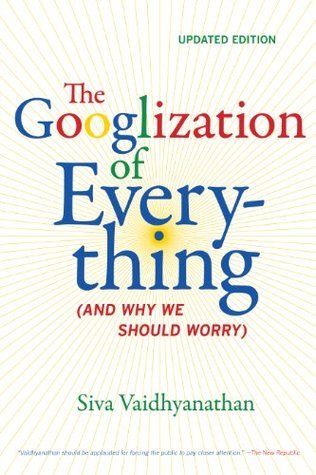What do you think?
Rate this book


282 pages, Kindle Edition
First published January 1, 2010
Google, for instance, makes money because it harvests, copies, aggregates, and ranks billions of Web contributions by millions of authors who tacitly grant Google the right to capitalize, or "free ride," on their work. So in this process of aggregation, who are you? Who are you to Google? Who are you to Amazon? Are you the sum of your consumer preferences and MySpace personas? What is your contribution worth?
We all Google our various gods, no matter what we worship or how worthy those gods are of our devotion. And now we expect nothing less than a meaningful response. Google's success is a function of our collective cultural weaknesses, and it in turn encourages them by ratcheting up our expectations.
our faith in Google leaves us vulnerable to other flaws: the tendency to believe what we want to believe...and belief itself, the credulity that makes us functioning social beings and that sometimes can betray us... When we choose to rely blindly on a pervasive, powerful gatekeeper that we do not understand, we are destined to make monumental mistakes.